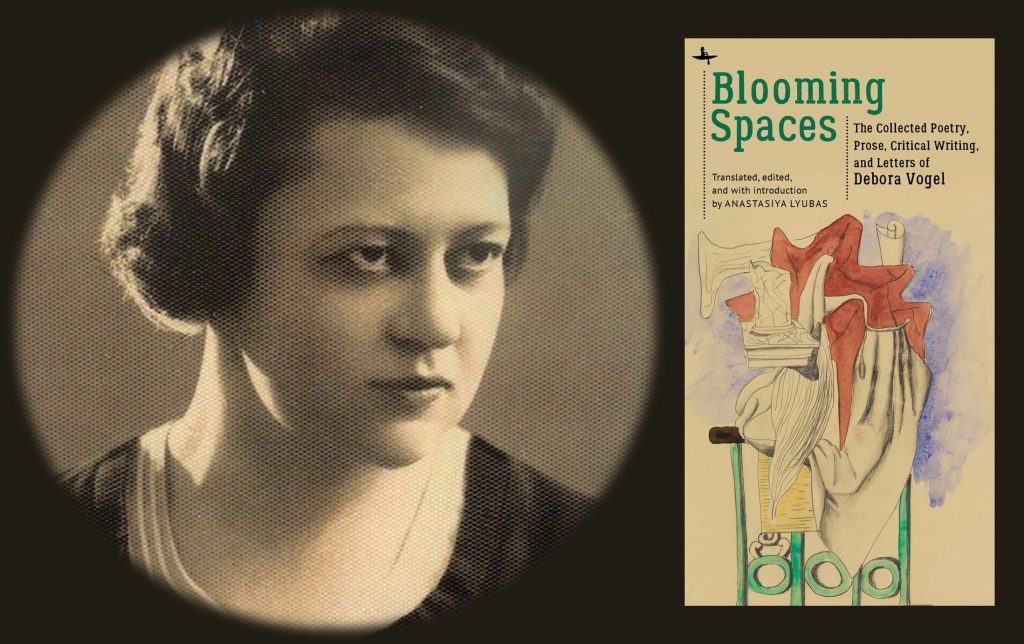Debora Vogel (1900-1942)
Debora Vogel is one of the most prominent figures among the 20th-century Yiddish-speaking authors of Eastern Europe. She wrote her texts mainly in Yiddish and Polish, rarely in Hebrew. Born in 1900 (or 1902, according to some sources) in Burshtyn, she was the only child in the family of Galician Jewish intellectuals, as her sister died as a child.
Debora's father was the long-time principal of the Jewish school in Burshtyn before their family moved to Lviv in 1910, where he headed a school at the Baron Hirsh Foundation. During the First World War, the Vogels fled to Vienna and stayed there until the end of the war. It was in Vienna that Debora passed her matriculation exam. Later, the family returned to Galicia and settled in Lviv. During that period, Debora's father was in charge of the Lviv shelter for Jewish orphans, where she also worked as a teacher for a while. Her father had a great influence on her and made sure her daughter received a good education.
Debora filled the post-war years with intensive learning as she took up Polish Studies, philosophy, and psychology at the Jan Kazimierz University of Lviv in 1919. She defended her doctoral thesis in 1926 at the Jagiellonian University. At the time, Debora was one of the first women in Eastern Europe to earn a doctorate in philosophy. After that, she started working at the Jewish seminar of Yakub Rotman in Lviv, where she taught psychology and Polish literature.
Interwar Lviv became fertile ground for the burgeoning Yiddish-speaking artistic milieu, in which Debora Vogel found herself. She became a co-founder of the Tsushtayer journal, whose contributors sought primarily to go beyond the boundaries of provincial culture, while developing and expanding Yiddish culture at the same time. Debora Vogel had warm, friendly relations with a number of extremely talented and important figures of that time, such as Rokhl Auerbakh, Bruno Schulz, Stanisław Witkiewicz, and the artists of the Lviv Artes group.
During the 1930s, Debora actively developed as a prose writer and poet. Initially, she wrote her poems in German and Polish and later mostly in Yiddish. In 1930, she published her debut collection of poetry, Figures of Days, which was soon followed by Mannequins. In 1935, Debora published Acacias Bloom, a collection of short prose with her own translation into Polish.
As far as her personal life is concerned, Debora married the engineer Shumil Barenlut in 1932, and they had their only child, son Anshel, in 1936. Debora continued to live and work in Lviv. Under the Soviet occupation, she lived in her apartment at 18 Lisna Street in Lviv and managed to earn a living. The situation worsened with the beginning of the German occupation. In the fall of 1941, Debora and her husband, mother, and son were forced into the ghetto, where they were shot in August 1942. Henryk Streng, Debora's good friend, identified the bodies and buried them, but the place of burial remains unknown.
Debora Vogel's name was effectively erased and forgotten for a long time. Among those who helped restore her name and draw attention to her figure are Jerzy Fitzowski, a Polish poet, translator, literary historian, and researcher of Bruno Schulz's work, and Karolina Szymaniak, a professor at the Jewish Historical Institute in Warsaw, where she heads the Yiddish Culture Center, and at the Department of Jewish Studies at Wrocław University.
Today, Debora Vogel's texts are accessible to Ukrainian readers thanks to Yurko Prokhasko's translations. The Dukh and Litera Publishing House published both of Debora's poetry collections in Ukrainian translation in 2015, the book Acacias bloom. Montages in 2018, and White Words, which included Debora's previously unpublished essays and letters, in 2019. Anastasiia Lubas, researcher and editor of White Words, very aptly said about the author at the public discussion "Catching up with Debora Vogel": "Vogel is not only a poet but also an excellent novelist and essayist. Her prose is extremely refined and philosophical, and her essays reveal a refined intellectual who wrote about aesthetics, philosophical concepts, racism, antisemitism, and the life of Lviv Jewry."




















